Recent Blog Posts
Inevitable Discovery: Is It Admissible?
 In a criminal case, there are many laws and regulations surrounding the methods used by police officers and other officials and how they obtain and submit evidence. Therefore, the question often arises, “Is it admissible?” In many cases, the answer is no because the police did not follow the correct protocol. As a direct result, many cases need to be thrown out, no matter how much evidence was against a defendant. If the police attain the evidence illegally, it is not admissible in court. Yet, in a criminal defense case, the prosecution heavily relies on the “inevitable discovery exception."
In a criminal case, there are many laws and regulations surrounding the methods used by police officers and other officials and how they obtain and submit evidence. Therefore, the question often arises, “Is it admissible?” In many cases, the answer is no because the police did not follow the correct protocol. As a direct result, many cases need to be thrown out, no matter how much evidence was against a defendant. If the police attain the evidence illegally, it is not admissible in court. Yet, in a criminal defense case, the prosecution heavily relies on the “inevitable discovery exception."
What Is the Inevitable Discovery Exception?
First, in order to completely understand the term, you must understand the law that inevitable discovery is an exception of, known as the exclusionary rule, as well as your Fourth Amendment rights. The Fourth Amendment is a portion of the United States Constitution that safeguards your home and your right to be arrested or searched without just cause. The Fourth Amendment states:
Coping with Assault and Battery Charges
 When two or more people are in in proximity to each other, there is always potential for something unexpected to happen. Everyone is different and therefore have different personalities and reactions to situations. Occasionally, arguments arise and can get blown out of proportion. Unfortunately, when tempers rise, impulse control can be lowered, potentially culminating in an assault and battery charge. While this is a very serious matter, it does not need to be a catastrophe.
When two or more people are in in proximity to each other, there is always potential for something unexpected to happen. Everyone is different and therefore have different personalities and reactions to situations. Occasionally, arguments arise and can get blown out of proportion. Unfortunately, when tempers rise, impulse control can be lowered, potentially culminating in an assault and battery charge. While this is a very serious matter, it does not need to be a catastrophe.
The Difference
Many times, assault and battery charges are paired together, leaving some to believe that it is one potential charge. To clarify, assault and battery are two different actions.
- Assault: The act of threatening someone verbally or physically, or causing them to fear for their safety or life, without actually physically touching the victim. This can be heightened to aggravated assault if a weapon was involved or if you were hooded or disguised during the encounter. There are also various state and government employees, as well as protected professions, where an assault will automatically be considered aggravated.
No Texting Versus Reasonable Suspicion
 As of January 1, 2014, Illinois lawmakers passed a law banning handheld devices from all vehicles. With this followed a shift in police protocol. Prior to cell phone usage in vehicles, police focused on speeding among other vehicle traffic violations and, with reasonable suspicion, were able to issue citations. Since the addition of cell phone usage to the prohibited list, officers are on the lookout for distracted driving and the ever present cell phone glow. If they see a driver with their face down and a device in their hand, it presents reasonable suspicion to issue a citation. However, in the electronics age, everything glows and requires our attention, even devices installed in our vehicles. So what constitutes reasonable suspicion for a cell phone related traffic violation?
As of January 1, 2014, Illinois lawmakers passed a law banning handheld devices from all vehicles. With this followed a shift in police protocol. Prior to cell phone usage in vehicles, police focused on speeding among other vehicle traffic violations and, with reasonable suspicion, were able to issue citations. Since the addition of cell phone usage to the prohibited list, officers are on the lookout for distracted driving and the ever present cell phone glow. If they see a driver with their face down and a device in their hand, it presents reasonable suspicion to issue a citation. However, in the electronics age, everything glows and requires our attention, even devices installed in our vehicles. So what constitutes reasonable suspicion for a cell phone related traffic violation?
What the Law Entails
Illinois bans all cell phone use while driving at all for any age. However, as of 19 years of age, drivers are permitted use of a hands free device, including bluetooth, speakerphone and headsets. Yet, even the hands free devices have limited usage privileges. The following locations are illegal to use even a hands free device:
DUI and the Medical Cannabis Act
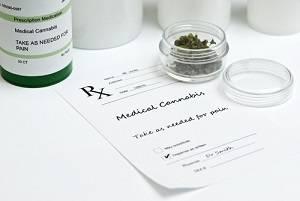 Driving under the influence of alcohol is the first thing that comes to mind when someone mentions a DUI charge. However, there are other substances besides alcohol that may result in a DUI traffic stop if you drive after you have consumed. In the state of Illinois, it is illegal to drive under the influence of alcohol, marijuana, other drugs, or any combination of these. Yet, the new Medical Cannabis Act may change everything with regards to DUI.
Driving under the influence of alcohol is the first thing that comes to mind when someone mentions a DUI charge. However, there are other substances besides alcohol that may result in a DUI traffic stop if you drive after you have consumed. In the state of Illinois, it is illegal to drive under the influence of alcohol, marijuana, other drugs, or any combination of these. Yet, the new Medical Cannabis Act may change everything with regards to DUI.
The Law before the Change
The state of Illinois has, rather used to have, one of the strictest policies when it came to driving while under the influence of marijuana. Before all of the medicinal marijuana law changes, many states adopted a per se law for marijuana, similar to the blood alcohol concentration measurements. With alcohol, in order to be charged and potentially convicted of a DUI, the blood alcohol concentration in an individual’s system must be at 0.08 percent or higher. In regards to marijuana, several states chose their own levels of impairment. In Washington, it was five nanograms per milliliter (5 ng/mL). In other states such as Ohio and Nevada, their limit was two ng/mL. Still, Illinois had a zero tolerance for marijuana. If any marijuana was found in your system, be it through a blood or urine sample, you would be charged with a DUI. This was referred to as a “trace law”.
Is It Illegal to Warn Others about a Sobriety Checkpoint?
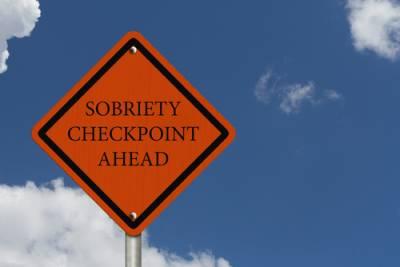 Chances are, if you have been out after dark on a Friday or Saturday night and in the vicinity of a popular nightclub, you have seen a police checkpoint. They generally are fairly obvious with bright lights and police vehicles. The point of these stops are to test for the sobriety of drivers on the road. Recently, more drivers are going through the checkpoints and then warning other drivers of a checkpoint ahead, most verbally but some go so far as to create signs and stand at corners. If you watch the driver’s reactions to the information, several of them turn and go the other direction, preventing a potential DUI charge. Did they do the right thing?
Chances are, if you have been out after dark on a Friday or Saturday night and in the vicinity of a popular nightclub, you have seen a police checkpoint. They generally are fairly obvious with bright lights and police vehicles. The point of these stops are to test for the sobriety of drivers on the road. Recently, more drivers are going through the checkpoints and then warning other drivers of a checkpoint ahead, most verbally but some go so far as to create signs and stand at corners. If you watch the driver’s reactions to the information, several of them turn and go the other direction, preventing a potential DUI charge. Did they do the right thing?
Are Checkpoints Even Legal?
While yes, an officer does need to have sufficient cause to stop a driver, the state of Illinois has determined that the dangers of drunk driving outweigh the intrusion of sobriety checkpoint. In other words, yes, in the state of Illinois, sobriety checkpoints, roadblocks, or mobile checkpoints are legal. However, the location of the checkpoint must be completely random and temporary. Officers are able to briefly interview the driver, at which point, if the driver is displaying suspicious behavior, the officer is entitled to conduct a field sobriety test. According to the Center for Disease Control and Prevention (CDC), these checkpoints potentially can prevent up to one in 10 DUI related deaths.
Breathalyzer vs. Body Temperature
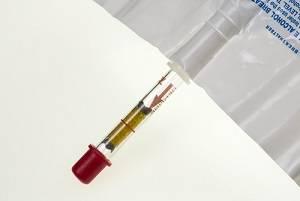 Since the day we are born, it is instilled upon us that everyone is different and unique. No two people are exactly alike, not even identical twins. Yet, almost everything produced today is based on results for the “average person”. As everyone is different, there logically really cannot be an “average” for some things. Take for example, a breathalyzer. A breathalyzer determines the Blood Alcohol Concentration (BAC) in your system when you breathe into it. Police officers today use this as a ready tool for charging an individual with driving under the influence (DUI). However, these charges can drastically change someone’s future leaving many to wonder, how accurate are they really?
Since the day we are born, it is instilled upon us that everyone is different and unique. No two people are exactly alike, not even identical twins. Yet, almost everything produced today is based on results for the “average person”. As everyone is different, there logically really cannot be an “average” for some things. Take for example, a breathalyzer. A breathalyzer determines the Blood Alcohol Concentration (BAC) in your system when you breathe into it. Police officers today use this as a ready tool for charging an individual with driving under the influence (DUI). However, these charges can drastically change someone’s future leaving many to wonder, how accurate are they really?
The answer: not very. While the concept of the breathalyzer is well intentioned, the execution of the invention has one major flaw. The basis of the breathalyzer calculations are on the average person, the one that does not exist. Let us also take into account that a breathalyzer measures BAC only indirectly, via the expiration of breath from the lungs, rather than directly from the blood. This alone gives a wide margin of error. While this is something that is incessantly redeveloped and argued, the current measuring system is inadequate to say the least.
Reinstating a Driver’s License
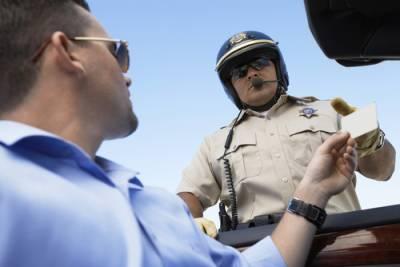 There are a large amount of offenses that may result in a driver’s license being suspended. These range anywhere from unpaid traffic violations to DUI arrests. No matter the reasoning, many are left wondering how to get to work, doctor’s appointments, and even their court ordered addiction group meetings (as in a DUI). There may be something you can do to better your situation. Potentially, you may be eligible to have your driver’s license reinstated.
There are a large amount of offenses that may result in a driver’s license being suspended. These range anywhere from unpaid traffic violations to DUI arrests. No matter the reasoning, many are left wondering how to get to work, doctor’s appointments, and even their court ordered addiction group meetings (as in a DUI). There may be something you can do to better your situation. Potentially, you may be eligible to have your driver’s license reinstated.
Actions That Can Get Your License Taken Away
There are multiple reasons why a license could be suspended or revoked. Each of them come with a written notification from the Secretary of State ordering a surrender of the license. These offenses include:
- Three moving traffic violations within 12 months;
New Illinois DUI Laws for 2016
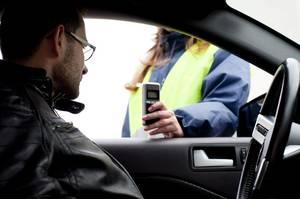 The ratio of alcohol to either blood or breath is known as a blood alcohol content (BAC) level. Since July 2, 1997, the blood alcohol content limit in Illinois has been 0.08%. Someone who has a BAC of 0.05% may also be charged with a crime if the driver appears impaired. The effect of alcohol is based on the amount of alcohol consumed and the rate at which it is metabolized and absorbed in the body. Other factors include gender, age, weight, and even mood. Prior to January 1, 2016, an individual convicted of driving under the influence (DUI) of either alcohol or drugs had an immediate suspension of their driving privileges of anything from 30 days to three years. This resulted in a large amount of individuals driving illegally.
The ratio of alcohol to either blood or breath is known as a blood alcohol content (BAC) level. Since July 2, 1997, the blood alcohol content limit in Illinois has been 0.08%. Someone who has a BAC of 0.05% may also be charged with a crime if the driver appears impaired. The effect of alcohol is based on the amount of alcohol consumed and the rate at which it is metabolized and absorbed in the body. Other factors include gender, age, weight, and even mood. Prior to January 1, 2016, an individual convicted of driving under the influence (DUI) of either alcohol or drugs had an immediate suspension of their driving privileges of anything from 30 days to three years. This resulted in a large amount of individuals driving illegally.
Changes to the Law
As of January 1, 2016, a new set of laws went into effect to give a reprieve to those dependent on their vehicle for daily life. If an individual fails, refuses to submit to, or fails to complete chemical testing, there is an automatic suspension of driving privileges, effective 46 days after the suspension notice was given. The new law states that if this is your first DUI offense, a driver is now eligible to apply for a Monitoring Device Driving Permit (MDDP) during the first 30 days of suspension.
Getting a Criminal Conviction Off Your Record
 A criminal conviction, even for a minor crime, can have a major impact on your life. The conviction will show up on criminal background checks, keep you from getting a job, make it difficult to find housing, and even prevent you from obtaining certain types of professional licenses. In some cases, however, it may be possible to have your criminal record sealed or expunged.
A criminal conviction, even for a minor crime, can have a major impact on your life. The conviction will show up on criminal background checks, keep you from getting a job, make it difficult to find housing, and even prevent you from obtaining certain types of professional licenses. In some cases, however, it may be possible to have your criminal record sealed or expunged.
What Are Expungements?
Expungement is the legal process in which the record of a criminal conviction is removed from official court records. If an expungement is granted, a conviction will no longer appear on criminal background checks. And, most of the time, the person previously convicted will be able to tell future employers or financial institutions that he or she does not have any criminal convictions on employment and housing forms.



